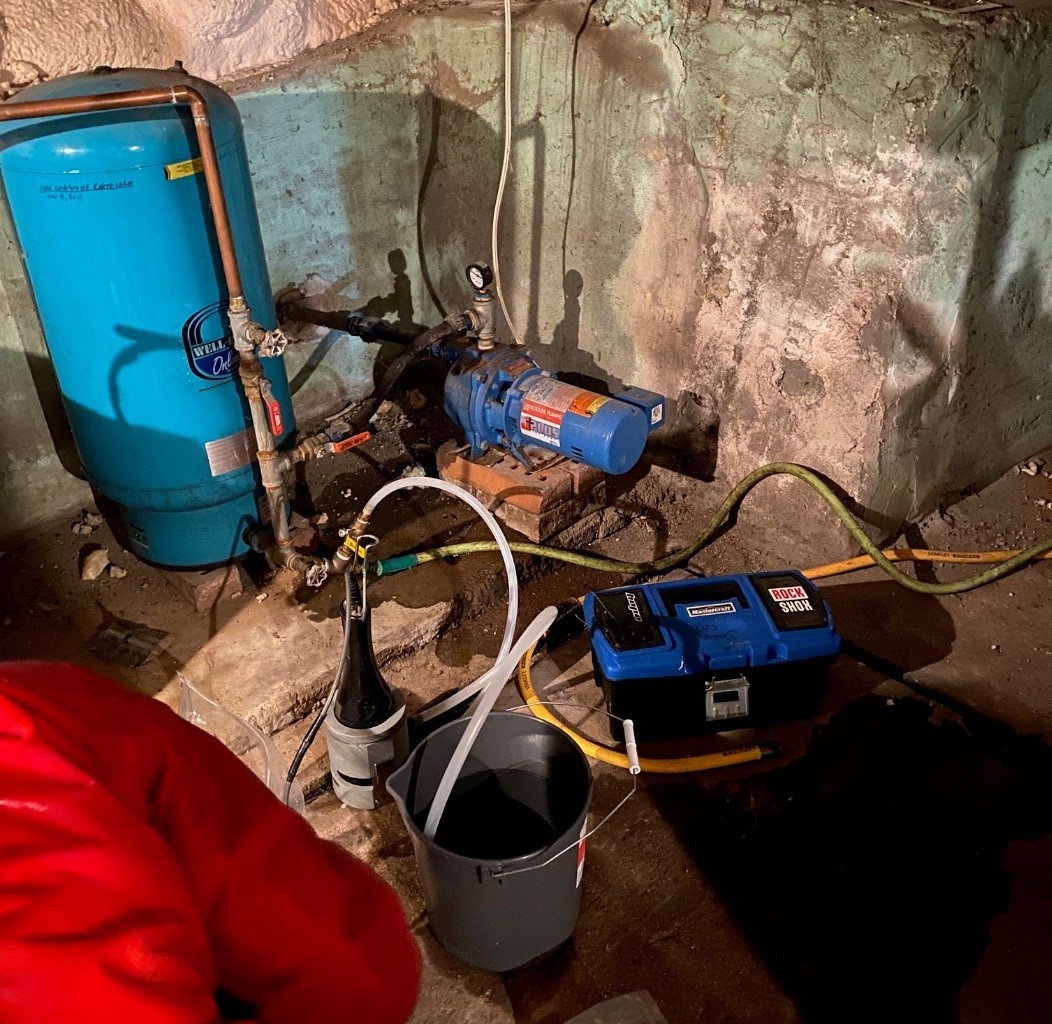The Nuclear Waste Management Organization (NWMO) geoscience team and their contractor have completed pre-drilling water well sampling and testing at the potential repository site in Teeswater, Ontario, marking another major milestone in its preparations for deep borehole drilling in the area this spring.
The NWMO’s geoscience work in the area in South Bruce, including deep borehole drilling, is an important part of our work to ensure the area would be a safe place to build to a deep geological repository for the long-term storage of used nuclear fuel in a manner that protects people and the environment for generations to come.
The geoscience team’s pre-drilling water well testing was done as part of borehole preparations.
Landowners who participated in that monitoring received the data on their wells, while others will soon be contacted about a separate set of water well monitoring activities that will support the environmental baseline monitoring program.
“We offered to sample landowner wells near the site, and we have completed this work and delivered the results of that testing. This information offered landowners valuable insight into the quantity and quality of their water supply,” said Alexander Blyth, Section Manager of Geoscientific Site Investigations at the NWMO.
Borehole Drilling
Construction of the access and pad for the first borehole was completed at the end of last year, and construction of the access for the second borehole and pad wrapped up in January.
“Over the last few months, we have made great progress to be ready to drill this spring,” said Sarah Hirschorn, Director of Geoscience at the NWMO.
Deep borehole drilling will offer NWMO specialists additional insight into the geology in the area — another key step in ensuring the safety of the potential repository site.
There are several other studies ongoing and in planning around water in the area. One of these is additional water well testing as part of the environmental baseline monitoring program co-designed with the community. As part of the next step in the environmental baseline monitoring program, we are asking a broader swath of landowners near the potential repository site if they would like to include their wells in the monitoring.
Community Feedback
In response to feedback received from the community, the private water well testing has been expanded to include more wells.
“We heard members of the South Bruce community loud and clear: monitoring and protecting water is of utmost importance. We listened, and now we are offering an expanded private water well monitoring program to landowners near the potential repository site,” said Joanne Jacyk, Section Manager for Environmental Assessment with the NWMO. “The environmental baseline monitoring program is about understanding the current local environment, from the water to the air to the flora and fauna, so we can avoid, prevent or mitigate impacts of our work if South Bruce is selected to host the repository."
The NWMO’s geoscience and environmental work will inform design and planning for the potential construction of a deep geological repository in South Bruce, should the area be selected to host Canada’s plan. South Bruce is one of two communities remaining in the NWMO’s site selection process, alongside Ignace, Ontario. The NWMO plans to select a site in 2024.
The NWMO is a non-profit organization tasked with implementing Canada’s plan for the safe, long-term storage of used nuclear fuel in a manner that protects people and the environment for generations to come. Canada’s plan will only proceed in an area with informed and willing hosts working together with the local community, municipalities and First Nations and Métis people to implement it.
Residents in the area near the potential repository site will receive information from the NWMO in the coming weeks as to how they can participate in the private water well monitoring program. Interested landowners can also visit nwmo.ca or contact NWMO Associate Scientist in Environmental Assessment Mary Devine at mdevine@nwmo.ca.

